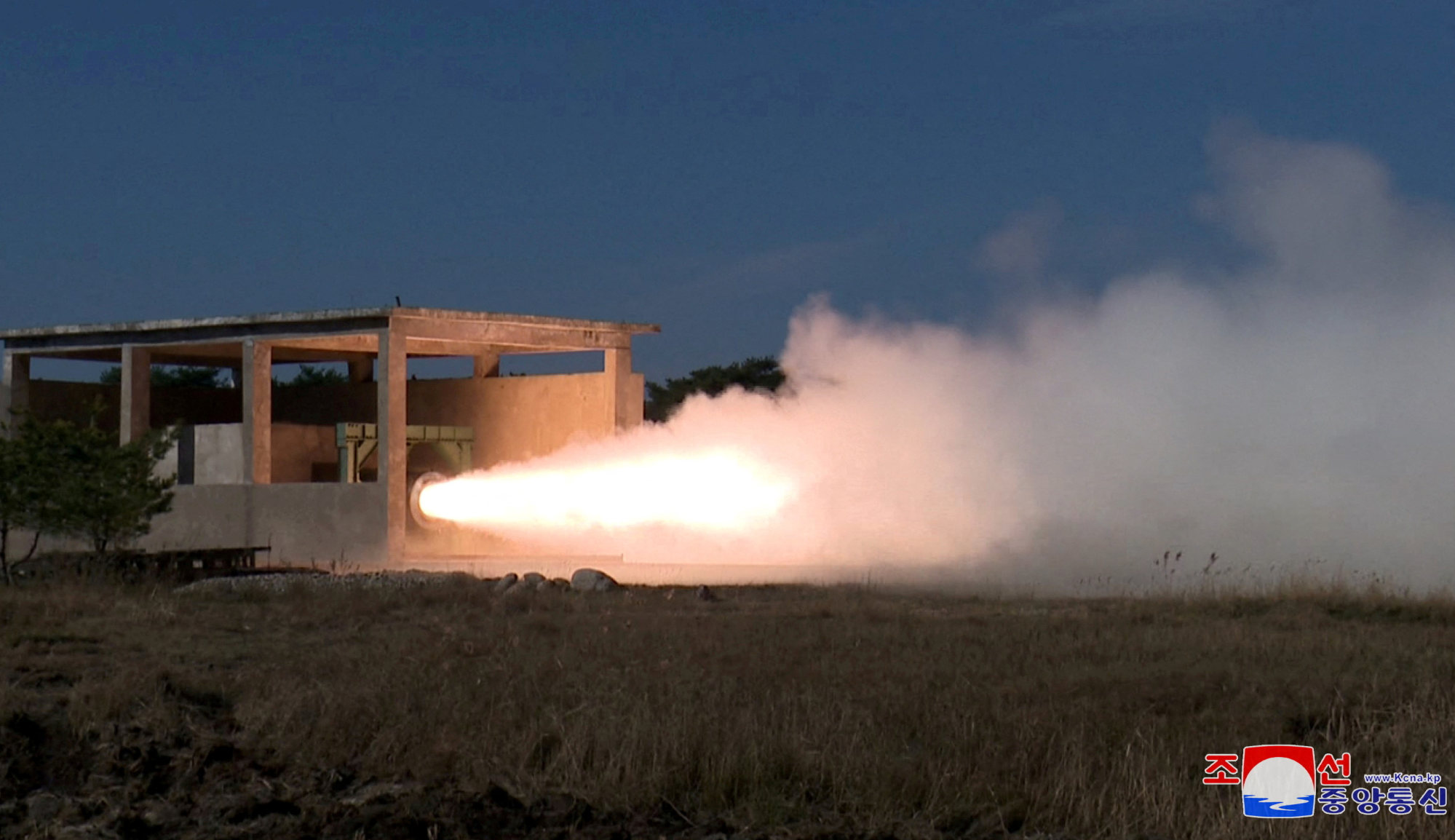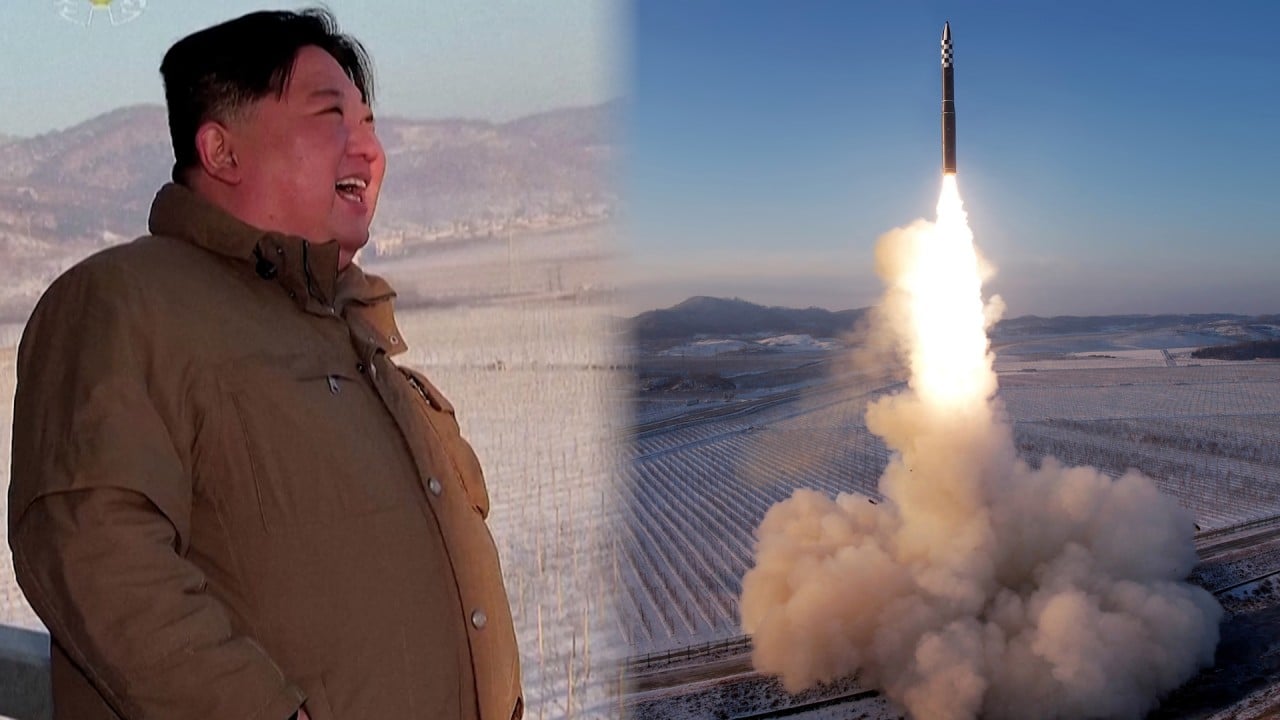What are solid-fuel missiles, and why is North Korea developing them?
[ad_1]
The new missile was also equipped with a hypersonic manoeuvrable controlled warhead, state media said.
Here are some characteristics of solid-fuel technology, and how it can help the North improve its missile systems.
Ukraine is ‘test site’ for North Korean missiles, Seoul tells UN
Ukraine is ‘test site’ for North Korean missiles, Seoul tells UN
Advantages of solid fuel
Solid-fuel missiles do not need to be fuelled immediately ahead of launch, are often easier and safer to operate, and require less logistical support, making them harder to detect and more survivable than liquid-fuel weapons.
“These capabilities are much more responsive in a time of crisis,” said Ankit Panda, a senior fellow at the US-based Carnegie Endowment for International Peace.
What is solid-fuel technology?
Solid propellants are a mixture of fuel and oxidiser. Metallic powders such as aluminium often serve as the fuel, and ammonium perchlorate, which is the salt of perchloric acid and ammonia, is the most common oxidiser.
The fuel and oxidiser are bound together by a hard rubbery material and packed into a metal casing.
When solid propellant burns, oxygen from the ammonium perchlorate combines with aluminium to generate enormous amounts of energy and temperatures of more than 2,760 degrees Celsius (5,000 degrees Fahrenheit), creating thrust and lifting the missile from the launch pad.

Who has that technology?
North Korea uses solid fuel in a range of small, shorter-range ballistic missiles.
Solid vs liquid
Liquid propellants provide greater propulsive thrust and power, but require more complex technology and extra weight.
Solid fuel is dense and burns quite quickly, generating thrust over a short time. Solid fuel can remain in storage for an extended period without degrading or breaking down – a common issue with liquid fuel.
South Korea on alert for clashes, nuclear test as Kim threatens ‘major ripple’
South Korea on alert for clashes, nuclear test as Kim threatens ‘major ripple’
North Korea said the development of its new solid-fuel ICBM, the Hwasong-18, would “radically promote” its nuclear counter-attack capability.
After the first launch, South Korea’s defence ministry sought to downplay the testing, saying the North would need “extra time and effort” to master the technology.
[ad_2]
Source link



 Casino Welcome Bonus
Casino Welcome Bonus